- Thursday, 19 February 2026
Leadership Reflects Public Apathy
It is believed that a nation's future is shaped by the leaders it elects and the duties its citizens embrace. If true, it is time for all Nepali citizens to question our duties and civic responsibilities. Are we embracing civic responsibilities? Questions have been raised from different corners of society that people and the culture they have practised are more responsible for making politicians more corrupt and irresponsible. Nepal is experiencing a critical juncture. With the nation experiencing persistent political unrest, frequent protests, and a general sense of instability, the people are leaving the country in search of certainty. There are multiple reasons why the nation has remained in the status quo for many years, leading to a state of quagmire. The situation prompts an urgent question: Are Nepali citizens and civil society fulfilling their civic responsibilities, or is a lack of engagement contributing to the country's ongoing turmoil? The Constitution of Nepal clearly outlines the duties of citizens, which include 'safeguarding national interests, abiding by the law, protecting public property, and serving the nation when called upon.' These responsibilities are legal obligations and the moral backbone of a functioning democracy. When citizens actively participate, demand accountability, and uphold shared values, they help build a stable, just society.
Leadership
The leadership is often considered a reflection of its people. Leaders behave as people expect from them, which is reflected in a nation's political governance. Sea changes have taken place in recent decades. The country has been passing through a critical juncture in its political trajectory, marked by widespread protests, violent confrontations between state security forces and demonstrators, and an overarching sense of national uncertainty.
Amidst these uncertainties and a climate of instability, a fundamental question arises: to what extent are Nepali citizens fulfilling their civic responsibilities, and how might their actions—or inactions—contribute to the ongoing crisis? There are different arguments and counterarguments as to why political leadership fails to instil a sense of optimism, dignity, and honesty among the people. Is there anything to do with our culture that is deep-rooted in the notion of social hierarchies? Why is the Nepalese society becoming indifferent to corruption and misuse of public property?
The civic responsibilities based on the culture seem to be under the threat of uncertainties, prompting frustrations and limbo. Triggered by the frustrations and other externalities, Nepal has experienced several political movements that have affected ordinary people the most. Marginalised people are bearing the brunt of violence and unrest. There are several examples that the frequent protests and repression have resulted in the loss of human life and damage to public property.
At the same time, political elites remain largely unaffected by these consequences. This has further catapulted societal anomalies and triggered stark disparity, raising pressing questions about prioritising public welfare and the ethical responsibilities of both leaders and citizens.
Nepal has undergone frequent government changes and persistent legislative gridlock during the past two decades. Despite repeated public movements, tangible healthcare, education, and employment progress remain limited. Corruption has been rising, yet the electorate often reinstates the same political actors, perpetuating a cycle of disappointment and disillusionment. Sustainable transformation demands robust democratic participation.
The ballot remains the most potent instrument of change. However, Nepal's electoral landscape is marred by deficiencies: campaigns prioritise personality clashes and partisan allegiance over substantive policy discourse, perpetuating governance failures.
Civil society
Civil society promotes accountability, social cohesion, and service delivery. However, challenges continue to erode social values and unity, causing insufficient engagement in democratic oversight. For civil society to be effective, it must foster collective action, promote transparency, and encourage citizens to participate actively in governance and social reform. History shows that violence rarely brings lasting solutions. Instead, meaningful change comes through democratic participation: informed voting, ongoing civic engagement, and sustained demands for transparency and ethical governance.
Civic education initiatives, such as youth engagement programmes and model assemblies, empower new generations to understand their rights and responsibilities, participate in policy debates, and become active change agents. Nepal's destiny is not determined solely by its leaders but by the collective will and actions of its citizens and civic society. True democratic renewal requires every Nepali to embrace civic responsibilities through informed voting, active participation, and a steadfast commitment to justice and accountability.
Only then can Nepal transcend its current crises and build a more stable, equitable, and democratic future. Recent incidents in Nepal have perpetuated a distressing reality: the casualties of political unrest are overwhelmingly ordinary citizens.
The tragic outcomes of such conflicts are borne disproportionately by the populace. Public and private infrastructure suffered damage, and the government imposed curfews while deploying the army to restore order. This pattern is not novel; throughout Nepal's modern history, from the Maoist insurgency to the Jana Andolan movements, the ordinary citizen has endured the brunt of political upheaval while political elites remain insulated mainly from consequences. This disparity raises urgent ethical and governance questions regarding prioritising public welfare.
Despite successive waves of protest, tangible improvements in healthcare, education, employment, and institutional integrity remain elusive. Corruption persists as a systemic ill, yet electoral patterns reveal a paradox: the electorate continues to re-entrench the same political actors despite their demonstrable failures. Political elites, in turn, exploit ethnic, regional, and religious divisions, perpetuating a cycle of manipulation and disillusionment. It is high time for the Nepali civic society to act upon generating awareness among the politicians and the general public. However, the integrity of civic society, which streamlines society towards the right path, is always essential. Failure to address public expectations will cost the nation and its citizens much.
(The author is a research scholar at the Faculty of Management, Tribhuvan University.)



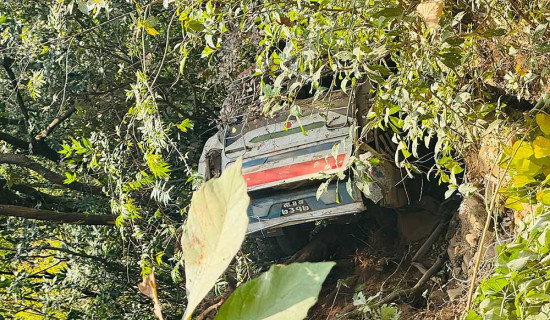
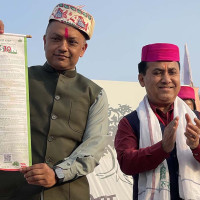
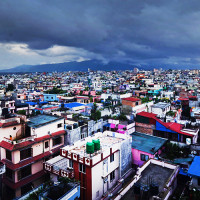
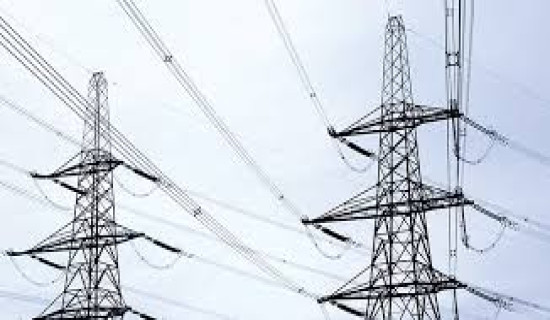
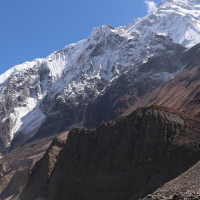
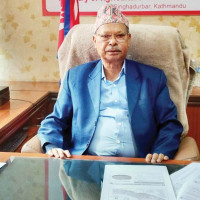
-original-thumb.jpg)






